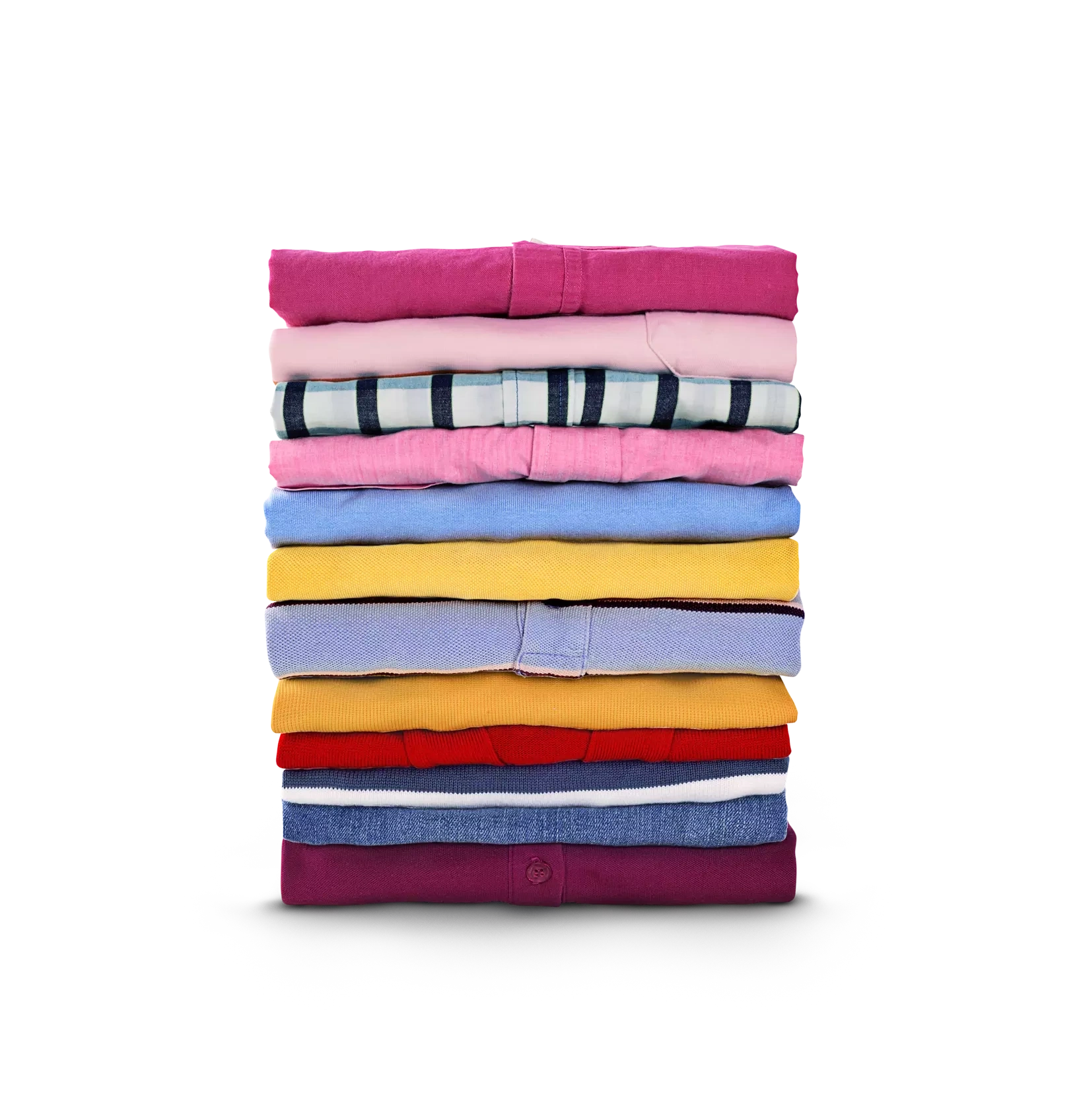Featured in this post
How Technology Can Bolster Corporate Social Responsibility in Fashion
How Technology Can Bolster Corporate Social Responsibility in Fashion
Aug 13, 2024
 Aptean Staff Writer
Aptean Staff Writer 
While often undervalued and viewed as just a legislative requirement, social responsibility in fashion isn’t only about compliance; it’s about doing the right thing. That means doing the right thing for the planet, your staff, communities and consumers.
Those consumers are increasingly selective about the businesses they support in the fashion industry—with 72% believing it’s important that fashion brands have ethical certifications. Millennial and Gen Z buyers in particular are seeking out brands that are transparent, sustainable and socially responsible.
This means that poor environmental and ethical practices can not only land you in hot water with regulatory bodies, but also damage your brand image and even lead to mass boycott and loss of profitability.
The fashion industry must respond by adopting thorough corporate social responsibility (CSR) initiatives focusing on environmental issues, ethical practices and social impact. This can help you build a more sustainable brand, satisfy legislative requirements and forge stronger relationships with consumers—fostering loyalty and setting your brand apart in the crowded market.
However, achieving these goals isn’t easy. That’s where technology comes in, helping you navigate social responsibility objectives efficiently and cost-effectively. From optimizing supply chain transparency to promoting good labor practices and streamlining regulatory compliance, innovative apparel software solutions can help your fashion brand fulfill its social, ethical and environmental responsibilities while meeting growing consumer expectations.
In this blog, we’ll cover the four major types of CSR and provide five ways apparel technology can help you drive social responsibility in your fashion industry business.
1. Ensuring Supply Chain Transparency
One of the most significant challenges in striving for comprehensive social responsibility in the fashion industry is ensuring complete supply chain transparency. By having end-to-end visibility into not only your own business activities, but the practices and policies of your suppliers, vendors and partners too, you’re able to track labor conditions, human rights adherence, sustainability efforts and safety standards throughout your supply chain. Plus, you have all the data you need to provide transparency for consumers and regulatory bodies alike.
So how do you gain that robust supply chain transparency? The answer is simple: fashion technology. For example, blockchain allows for the secure recording of transactions at every stage of your supply chain, from raw materials to finished products—helping your business verify and track ethical sourcing and fair labor practices.
In addition, advanced systems such as apparel enterprise resource planning (ERP) software and shop floor control (SFC) systems can offer you a unified, digital view of your supply chain. By consolidating disparate data, improving accuracy, automating processes and boosting collaboration, these systems ensure you have the supply chain visibility you need. This helps your leaders understand current adherence to CSR goals and identify areas for improvement, as well as offering a host of operational benefits such as reduced costs and improved efficiency to bolster your economic responsibility.
Plus, by having all of these reliable details on hand in one seamlessly connected digital platform your organization can more easily communicate its social responsibility commitments. Whether it’s providing audit data to regulatory bodies, sharing certifications quickly with suppliers or demonstrating your dedication to ethical and sustainable practices to consumers, transparency is streamlined with the right fashion technology.
2. Reducing Environmental Impact
Reducing environmental impact is critical to social responsibility in the fashion industry. From rising global temperatures and extreme weather events to biodiversity loss and natural resource depletion, the world is facing many environmental crises. To mitigate these challenges, your fashion and apparel business must integrate sustainability into its core operations.
Here technology shines again, helping you reduce your carbon footprint, conserve resources and contribute to a healthier planet—ultimately benefiting society, enhancing your brand reputation and improving long-term business viability. Firstly, integrated fashion ERP and shop floor control systems enable your brand to improve demand forecasting, identify inefficiencies and optimize resource use. This reduces material waste by limiting over-ordering, scrap and rework.
Artificial intelligence and machine learning are also transforming how companies in the fashion industry approach sustainable practices. These technologies optimize manufacturing by analyzing data, providing automations, fueling data-driven decisions and improving efficiency.
Finally, to address environmental concerns in the fashion industry, you’d be remiss not to look at the impact of distributing your products. Whether you’re using third-party providers or your own fleet of vehicles, using transportation management system (TMS) tools to identify the best carriers and routes is critical to reducing emissions and minimizing the carbon footprint of your distribution operation.
3. Promoting Ethical Labor Practices
CSR and ESG combined provide a framework for companies to address labor issues proactively. By prioritizing fair wages, safe working conditions and employee well-being, your organization can create a positive work environment and contribute to the overall development of the workforce.
Implementing ethical labor practices is not only a moral obligation, but a strategic imperative. Committing to social responsibility will help your brand attract and retain top talent, build strong customer loyalty and mitigate reputational risks. Moreover, ethical labor practices can foster innovation and productivity by empowering your employees. As consumer awareness of labor conditions grows, businesses that prioritize ethical sourcing and fair treatment of workers will gain a competitive advantage.
Ensuring these ethical labor practices in your organization is easier with the right tech. Integrating Internet of Things (IoT) devices with apparel ERP software can enhance factory monitoring and compliance as they track working conditions in real time, ensuring adherence to safety standards and labor laws. Plus, with a range of features designed to streamline worker performance and payroll processes, SFC software can help you better manage individual and team incentive schemes to reward your employees.
To further boost your efforts here, be sure to look out for a fashion ERP system with an integrated vendor management portal that can help you quickly and efficiently collect onboarding data, certifications and third-party validation information about your suppliers. This way you can always be sure of the ethical and compliance credentials of your supply chain partners without a tedious administrative process.
4. Enhancing Product Lifecycle Management
In fashion, where trends change rapidly and consumers discard items frequently - a particular challenge in the era of fast fashion - it’s imperative to look critically at social responsibility in every step of your product lifecycle, from design to disposal.
Therefore, integrating product lifecycle management (PLM) software into your company's CSR strategy can yield significant benefits. By scrutinizing and controlling a product's entire journey, an apparel-specific PLM allows your team to identify areas for improvement and enact changes using the software.
From the get-go, a PLM system enables your brand to make informed decisions about materials and procedures during the new product development (NPD) process in order to prioritize social responsibility and sustainable practices. For example, by innovating new designs using sustainable materials or selecting suppliers that adhere to high labor standards. This ensures your products are compliant by design, helps you bring innovative new products to market faster to satisfy consumer demands and provide full transparency into your product’s CSR credentials.
At the other end of the cycle, your organization can use PLM software to meet ESG aims by designing products for durability, recyclability and ease of repair. This approach reduces waste and promotes circular fashion, where products are designed with their end-of-life in mind.
All in all, an advanced PLM platform provides tools for all of your teams ensuring CSR is integrated into every stage of your product lifecycle. So, you can not only enhance your reputation with a strengthened commitment to social responsibility in fashion, but also drive innovation—inspiring new ways of thinking and problem-solving while increasing efficiency.
5. Improving Consumer Engagement and Education
Consumer engagement and education are integral to successful corporate social responsibility in fashion. By demonstrating a genuine commitment to ethical and environmental issues, businesses can differentiate themselves in the marketplace, attract conscious consumers and contribute to a more sustainable future. However, this must constitute more than a few strategically placed lines in your marketing materials.
Educating customers about not only your business’ s sustainability and ethical practices, but also the part they can play empowers consumers to make more informed choices. Moreover, involving customers in CSR initiatives creates a sense of ownership and shared responsibility, strengthening the brand-consumer relationship.
Augmented reality (AR) and virtual reality (VR) are powerful tools for educating consumers about the origins and impact of their purchases. These technologies enable your brand to create immersive experiences, allowing consumers to engage more impactfully in the journey of their products from raw materials to store shelves.
Customer relationship management (CRM) systems also facilitate better communication and engagement with consumers by tracking interactions and preferences—allowing your brand to tailor educational content and provide detailed information about your CSR efforts.
Build a Socially Responsible Fashion Brand With Aptean Apparel Technology
You know just how critical it is to prioritize corporate social responsibility in the fashion industry, and you've no doubt worked hard to establish a positive brand reputation and earn the trust of consumers.
But, in the current era of sensationalist headlines and trial by social media, you could quickly find your work undone by a slight oversight or the inability to foresee consequences of past decisions. So, to stand out from the crowd in the right way and do right by your people, our communities and our planet, you’ll need to do more than outline a few ESG objectives.
You must embrace CSR by fostering an environmentally and ethically conscious corporate culture and commit to continuous improvement efforts in these areas. Thankfully, as we’ve seen in this blog, technology has your back. Software systems such as ERP, PLM and SFC, as well as advancements like AI and VR, can serve as a catalyst for enhancing your CSR strategy and improving public perception.
So, ready to get started fueling positive change throughout your organization? Aptean’s advanced systems for fashion and apparel manufacturers can help you seamlessly integrate CSR initiatives into your operations, all while improving efficiency, reducing costs and enhancing customer service. With industry-specific features as standard, cloud deployment options available and dedicated in-house experts on hand to offer proven support, Aptean offers the full package.
The combination of our innovative solutions and reliable support can help you improve productivity, enhance sustainability, boost profitability and bolster your CSR efforts.
Read success stories from our apparel customers or get in touch today to learn how Aptean can support your journey toward providing socially responsible fashion.
Ready to Transform Your Apparel Business?
We’ve got the specialized ERP solutions you need to conquer your fashion industry challenges.



